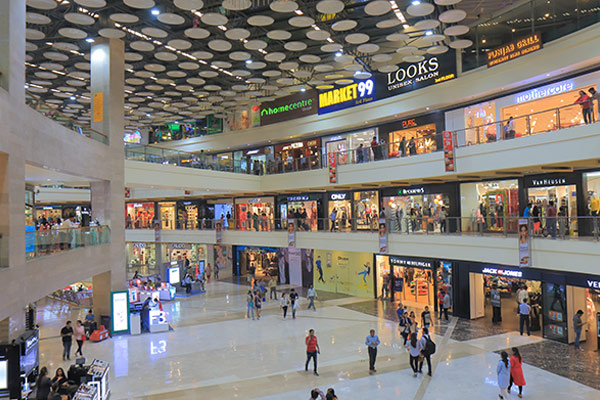A joint report by real estate consultant Anarock and Retailers Association of India (RAI) reveals that over the next four to five years, Delhi-NCR and Hyderabad will contribute almost 46% of the new mall supply to India’s top cities. This surge in supply is driven by newer brands entering the market and the expansion of existing ones. The report titled ‘India retail real estate-revived, reshaped, & reinforced’ indicates that developers plan to add almost 25 million sq ft of new mall space across the top seven cities during this period. Bengaluru will account for 19% of the new supply.
The growth of India’s retail market has been impressive, thanks to the rising consumption and a rebound in the retail market in 2022, as stated in the report. Currently, the top seven cities have over 51 million sq. ft of mall stock, with NCR, MMR (Mumbai Metropolitan Region), and Bengaluru accounting for 62% of the total stock.
The expansion plans of offline retail businesses by conglomerates such as Reliance Industries, the Tata group, and Aditya Birla Group have contributed to this growth. Companies believe that well-heeled Indians and those entering the white-collar workforce will drive demand for premium brands and experiences.
Anuj Kejriwal, the Chief Executive and Managing Director of Anarock Retail, notes that the revival of consumer sentiments and penchant for consumption has led to the prompt action of brands, retailers, and mall developers. The new planned mall supply across the top seven cities is a testimony to the developers’ expansion strategy.
The report predicts that India’s retail market will touch $2 trillion by 2032, growing from $690 billion in 2021. However, the rapid growth of e-commerce is set to reshape Indian retail, with more brands charting an omnichannel strategy for expansion. Online retail is expected to touch 37% of the overall organized retail market by 2030, up from the current 25%.
Since footfalls post the covid-induced lockdowns have increased and occupancy in established malls has improved, there has been a spike in rentals. This is especially true for cities such as Bengaluru and Kolkata, where average rentals in malls appreciated by nearly 15% in 2022 over the previous year, breaching pre-pandemic levels. Mall operators have started to reverse the concessions offered to occupiers during the pandemic. Higher rentals have also led to a churn in tenants.

